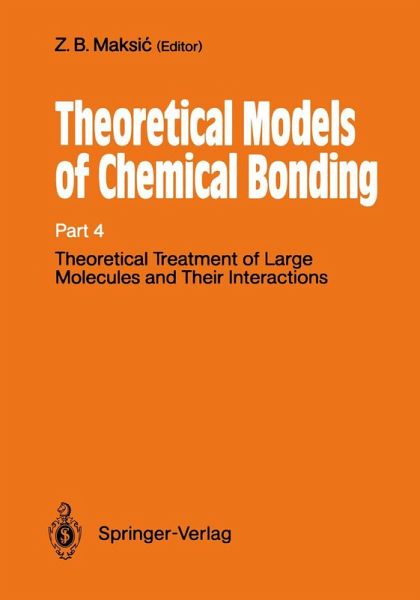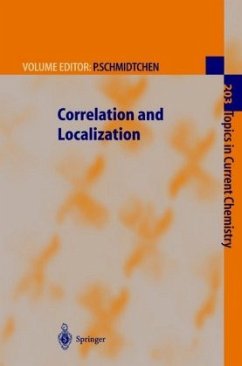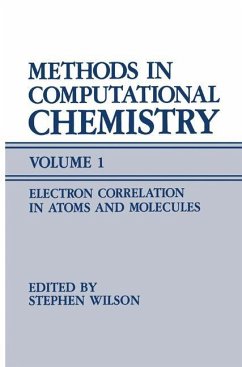
Theoretical Treatment of Large Molecules and Their Interactions
Part 4 Theoretical Models of Chemical Bonding
Herausgegeben von Maksic, Zvonimir B.

PAYBACK Punkte
191 °P sammeln!
The French chemist Marcelin Berthelot put forward a classical and by now an often cited sentence revealing the quintessence of the chemical science: "La Chimie cree son objet". This is certainly true because the largest number of molecular compounds were and are continuously synthesized by chemists themselves. However, modern computational quantum chemistry has reached a state of maturity that one can safely say: "La Chimie Theorique cree son objet" as well. Indeed, modern theoretical chemistry is able today to provide reliable results on elusive systems such as short living species, reactive ...
The French chemist Marcelin Berthelot put forward a classical and by now an often cited sentence revealing the quintessence of the chemical science: "La Chimie cree son objet". This is certainly true because the largest number of molecular compounds were and are continuously synthesized by chemists themselves. However, modern computational quantum chemistry has reached a state of maturity that one can safely say: "La Chimie Theorique cree son objet" as well. Indeed, modern theoretical chemistry is able today to provide reliable results on elusive systems such as short living species, reactive intermediates and molecules which will perhaps never be synthesized because of one or another type of instability. It is capable of yielding precious information on the nature of the transition states, reaction paths etc. Additionally, computational chemistry gives some details of the electronic and geometric structure of molecules which remain hidden in experimental examinations. Hence, it follows that powerful numerical techniques have substantially enlarged the domain of classical chemistry. On the other hand, interpretive quantum chemistry has provided a conceptual framework which enabled rationalization and understanding of the precise data offered either by experiment or theory. It is modelling which gives a penetrating insight into the chemical phenomena and provides order in raw experimental results which would otherwise represent just a large catalogue of unrelated facts.












